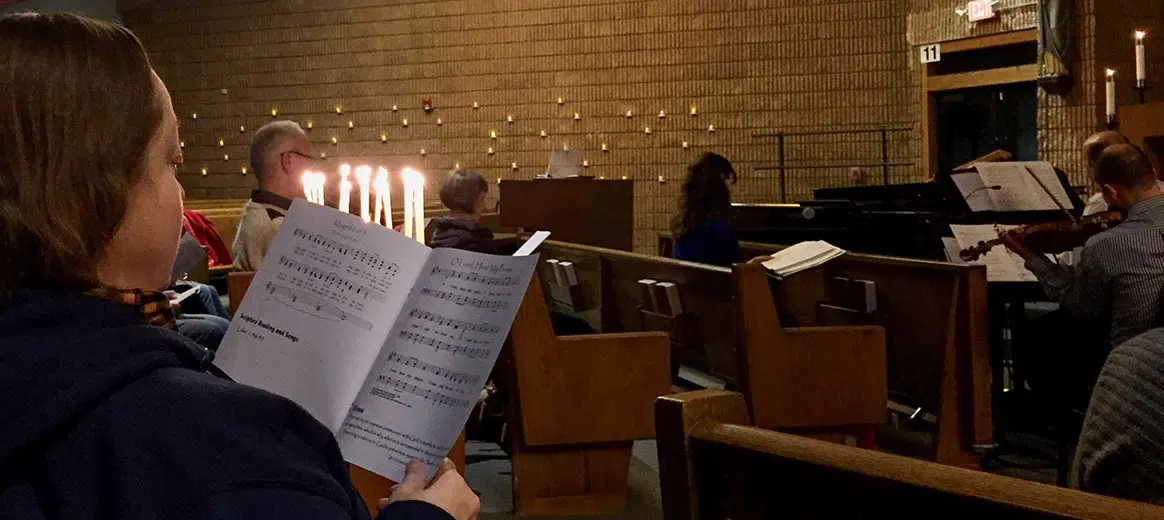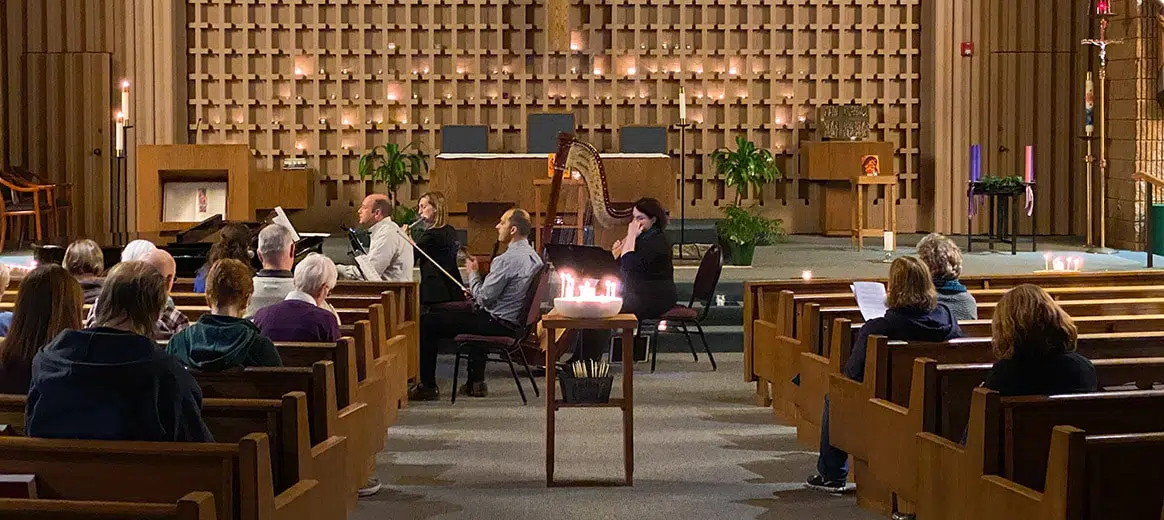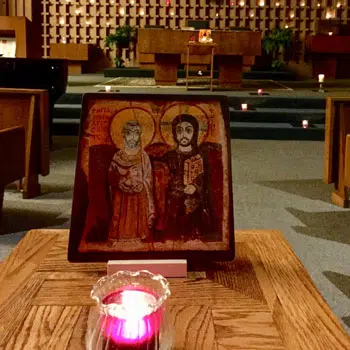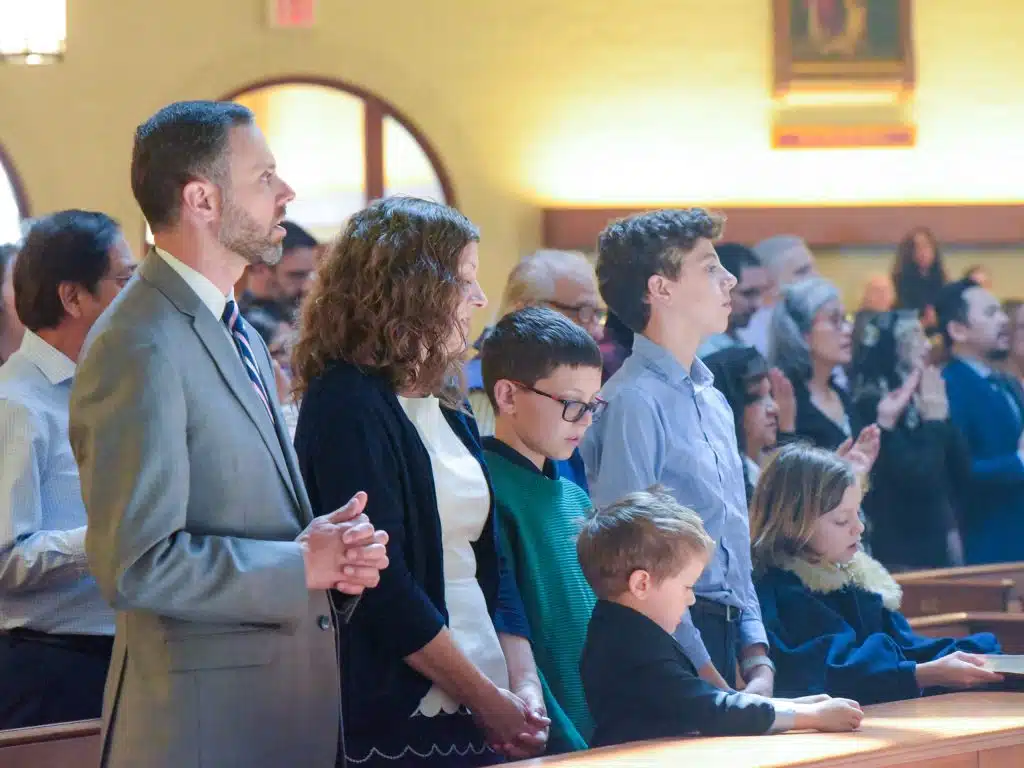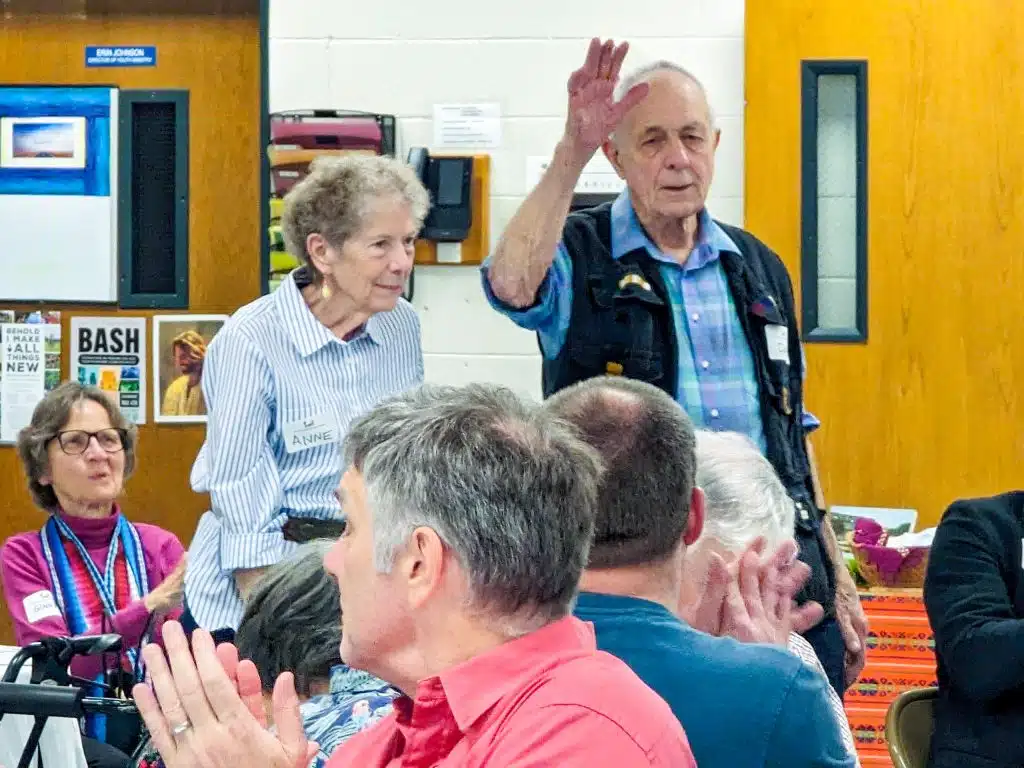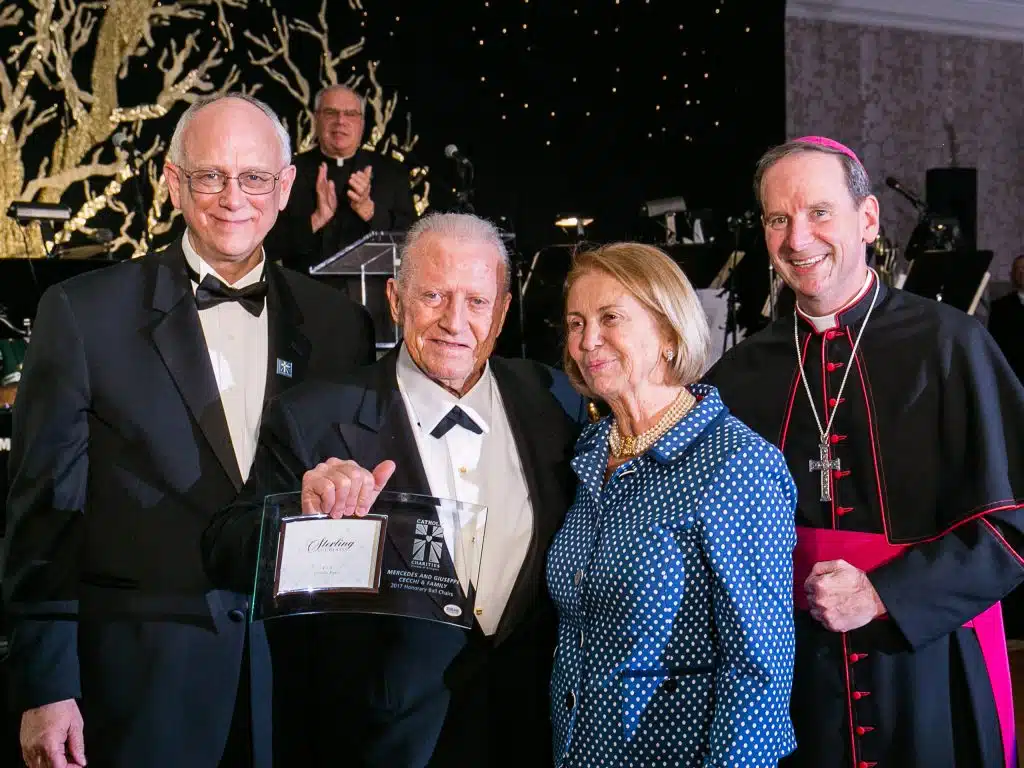CJ Capen has performed and conducted music all over the world, but he still has a hard time describing Taizé-style chanted prayer.
“When parishioners ask me about Taizé and want concrete answers, it’s so hard to explain … they want to know in words what it’s about, but I say ‘Just come, words can’t explain it — it’s something that must be experienced,’” said Capen, director of music at St. John Neumann Church in Reston since 2008.
Taizé (pronounced tay-zay) is an ecumenical monastic community founded in 1940 in France; its unique style of simple, repetitive chanted prayer has become known all over the world, especially among young adults. Tens of thousands make pilgrimages there each year.
The parish had been offering Taizé-style prayer before Capen arrived; he continued the tradition, planning services a few times a year during special seasons such as Advent and Lent. But lately it’s proven so popular that the schedule has been expanded to once a month.
Services last about 45 minutes and include six or seven simple songs, a scripture reading and five to 10 minutes of silence, followed by sung intercessions and the Lord’s Prayer. Capen provides accompaniment on piano and often has other musicians join him on violin, flute, oboe and even harp.
“It’s introspective and personal, but you have the whole community doing it together in worship. Every time it feels a little different,” said Capen, who has become so intrigued by the practice that he has visited the Taizé community twice, in 2013 and 2015.
He sums up the appeal in a simple statement that appears on the front of the eight-page song booklets he distributes at each service:
“Prayer in the Spirit of the Taizé community is a meditative form of common prayer. Gathered in the presence of Christ, we sing uncomplicated, repetitive songs, uncluttered by too many words, allowing the mystery of God to become tangible through the beauty of the simplicity. A few words sung over and over again reinforce the meditative quality of prayer. They express a basic reality of faith that can quickly be grasped by the intellect and that gradually penetrates the whole being.”
One thing Capen said struck him about Taizé was the community’s diversity. It is made up of more than 100 brothers from 30 countries, from both Catholic and Protestant backgrounds. Visitors speak many languages, yet they are able to sing and pray together easily, thanks to an emphasis on the simple, accessible refrains, woven together with threads of silence.
“One refrain is in Spanish, the next is in English — all different languages. We struggle sometimes with bilingual Mass in church, but Taizé just works — it feels organic,” Capen said.
Taizé’s website notes that by its very existence, it is a “parable of community” that wants its life to be “a sign of reconciliation between divided Christians” and between separated peoples.
Capen said he hopes to eventually reach out to other local faith communities — “not to make a big deal of it, but with the idea of praying together as one.”
Parishioner Frank Sasinowski was introduced to Taizé prayer while volunteering at the Northern Virginia Mental Health Institute in Falls Church, where Capen has held Taizé services for patients a few times a year. “I was taken by the melodic, repetitive chanting; it spoke deeply to me — and on occasion it would open me up to be moved nearly to tears,” he said.
Capen knows Taizé can have that effect on people. “If you want to deepen your prayer during Lent, I think it’s imperative to find some quiet time, to have time to be still,” and Taizé can help do that.
“We love the prayers we’ve memorized … but it can become a habit and we’re not really praying anymore. There’s something about Taizé that just transforms you. It turns me around, from busy and stressed to feeling that connection to God.”
Experience Taizé prayer
Prayer in the Spirit of Taizé is on the first Tuesday of each month at 7:30 p.m., with an additional service March 24 during Lent. All services are in the chapel at St. John Neumann Church, 11900 Lawyers Rd., Reston, VA 20191. For more information, visit the church website at saintjn.org or call 703/860-8510.
